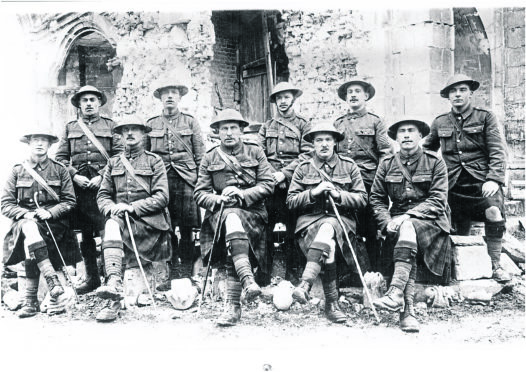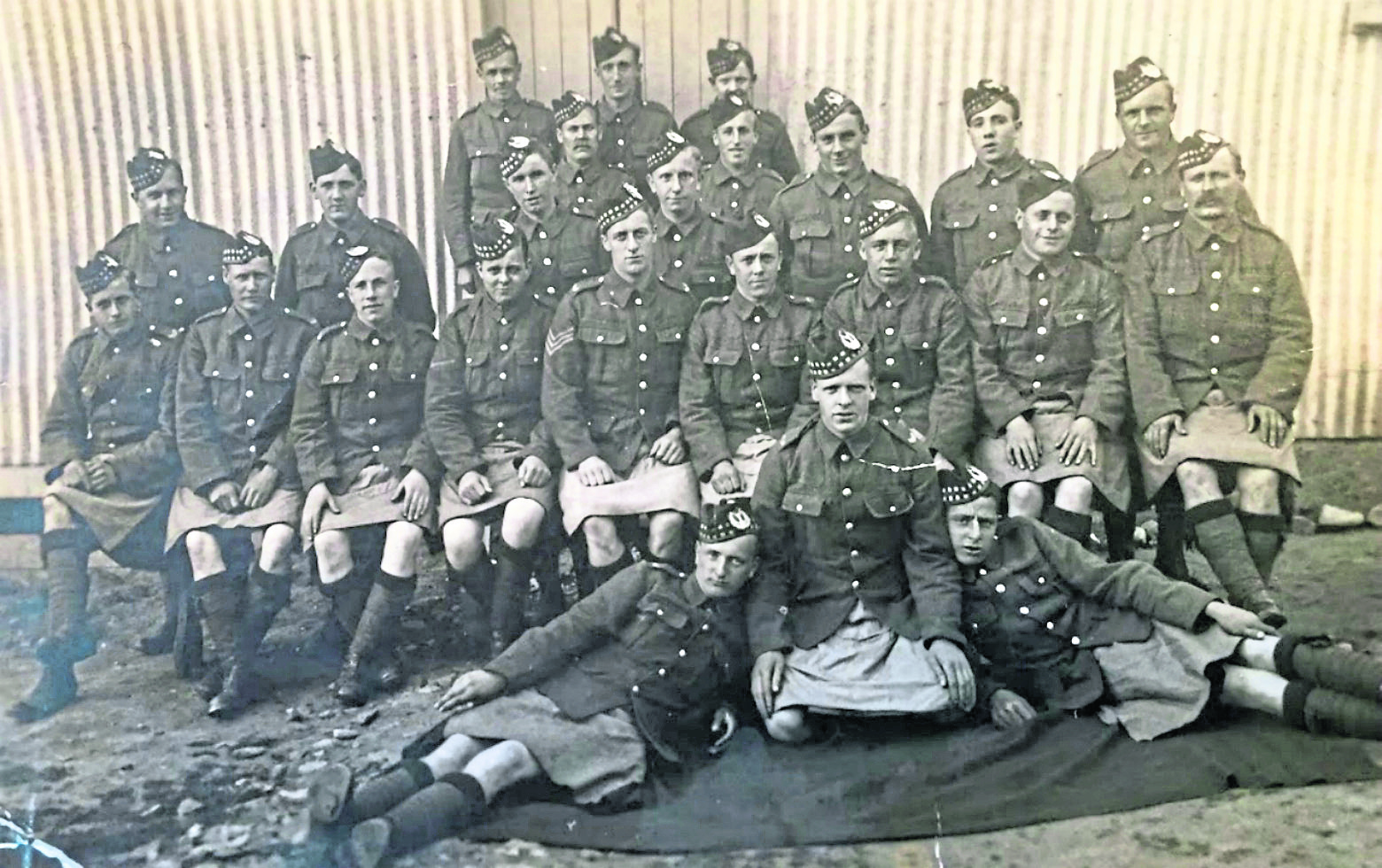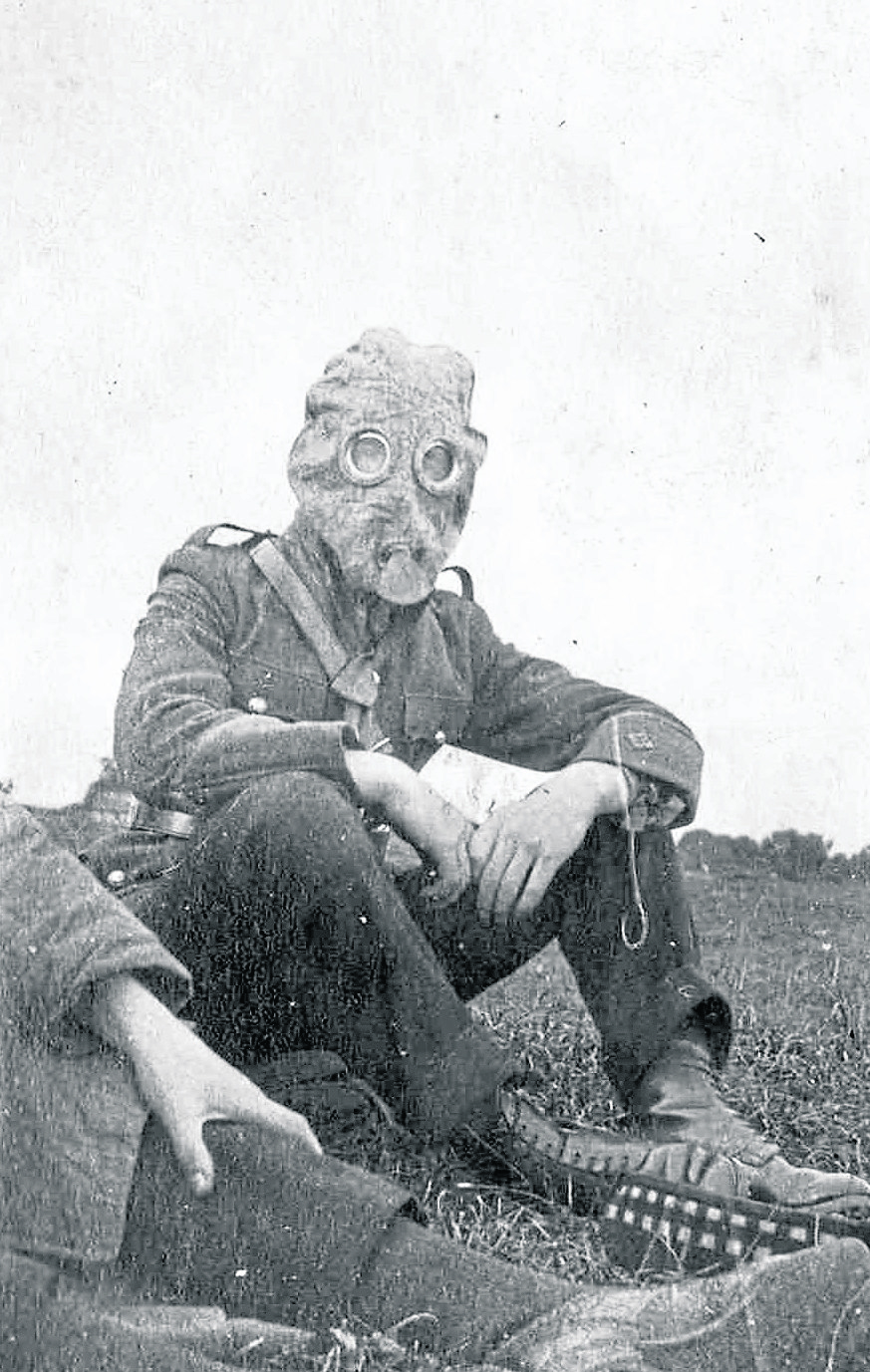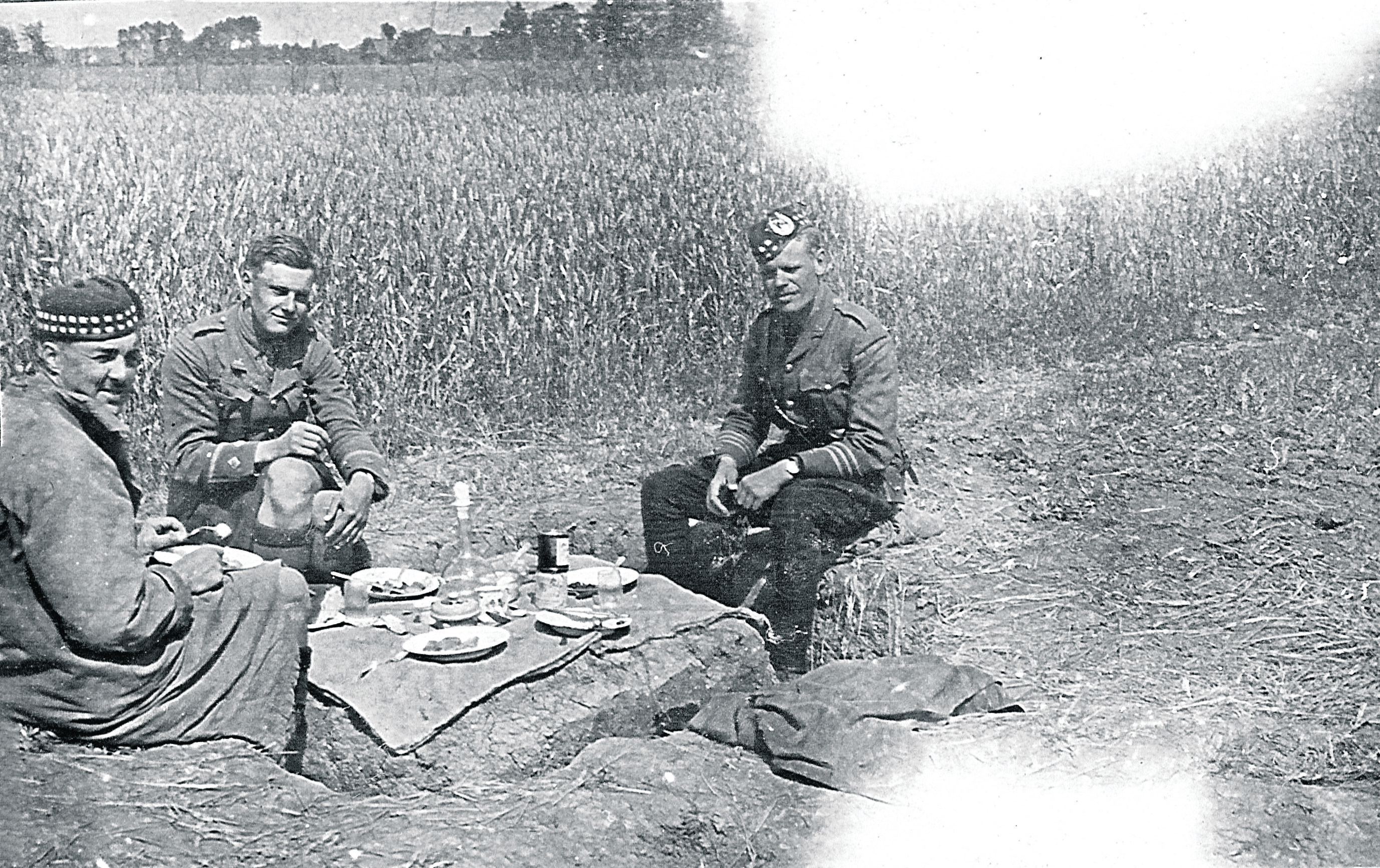One Saturday night during the Great War, a youngster called Jimmy Scott and a friend bought some bottles of “porter ale” in the Aberdeenshire village of Methlick.
They drank them and started “caperin’ aboot in the street makin’ a bit o’ a din”.
The local minister happened to pass by. The next day he gave a sermon condemning their “degrading exhibition” and remarked that the two lads would be better employed fighting for King and country rather than “making fools” of themselves “with strong drink”.
Jimmy Scott and his pal took the minister at his word. They hired the man from the Temperance Hotel to take them to Aberdeen, where they joined up.
Thus began Jimmy Scott’s military career. He embarked on a journey that took him – and countless others from the north and north-east – to the trenches where they experienced unimaginable horrors.
Jimmy Scott was wounded on the Somme yet survived the war. His story would have been lost – like so many of his comrades – had it not been for the remarkable efforts of Jock Duncan, a well-known bothy ballad singer.
As a youngster, Mr Duncan, now 93, began recording the memories of First World War veterans from his native north-east in the late 1930s. It was a project that continued until the last of the old soldiers passed away in the 1980s. The interviews were carried out unobtrusively. Not even close family members knew exactly what Mr Duncan was doing as he typed up the recordings at home. For years the fruits of his labours remained a closely-guarded secret between him and his typewriter.
But 100 years after the last shot was fired, the eloquent, intensely moving testimonies extracted by the nonagenarian are finally to be published for the first time.
Jock’s Jocks: Voices of Scottish Soldiers From The First World War tells the extraordinary stories of ordinary men, most of whom were from the north-east and fought with the Gordon Highlanders and The Black Watch.
Recorded and transcribed faithfully in the north-east vernacular, the accounts of the destruction of trench warfare plus countless acts of gallantry have been edited by Professor Gary West, a family friend of the Duncans.
Published by the National Museums Scotland with the European Ethnological Research Centre at Edinburgh University, Jock’s Jocks recounts the war service of 59 old soldiers in their own words.
Running through their first-hand reports of Mons, Gallipoli, Loos, the Somme, Ypres, Passchendaele and Cambrai are harrowing descriptions of the unprecedented human sacrifice of the 1914-18 conflict. The reader learns, for example, that not even the famous Christmas truce of 1914 offered a respite from the blood and guts. According to Jimmy Reid, of the 6th Gordons, one of the duties of the ceasefire was to “collect aa the deed bodies an beery them… that wis nae picnic, some just bits and hid to be collected into bags an’ the stink beat hell”.
Many of the farmhands, shepherds and gamekeepers, who left the north-east to answer Lord Kitchener’s call, were to become inured to piles of rotting corpses. As Peter Baigre, of the Camerons and Black Watch, put it “we… got eased to seeing the heeps o’ deed – wir ain and Gerry that lay in front os aa the time. I never saa sae muckle deed as lay oot there at Arras.”
The close-knit nature of communities from where the men were drawn made the losses particularly poignant. On the Somme, John Rennie, of the 5th Gordons, was lying beside a young lad while they attacked at High Wood. In spite of Mr Rennie’s warnings his companion rose to loose off a shot at the enemy. The inevitable happened and he was killed by a German bullet. After the war, Mr Rennie, from Turriff, was courting his future wife when she showed him a photograph of a dearly loved brother she lost in the conflict.
His reaction was one of astonishment. “I ken far aboot this lad wis killed – he wis lyin’ aside me at High Wood,” he said.
Families were decimated. Alec Robertson, of the 5th Gordons, described a German mining operation underneath a trench that cost the lives of twins and their two uncles from Fraserburgh. “The explosion didn’t kill that many either as we dug most out alive although a few were never found,” Sgt Robertson told Jock Duncan. “After that tragedy the Gordon Highlanders didn’t allow close relations to be in the same company.”
The agony of burying men in their kilts is described along with accounts of survivors struggling with dysentery, the “hellish smell o’ corpses”, losing limbs, shell shock and rats “like dogs” living on cadavers. And it is hard to believe that there has ever been a more vivid record of going over the top, putting down horses, wounded soldiers drowning in shell craters or the terror of enemy gas attacks.
The obliteration of shell fire was remembered by John Webster of the Royal Field Artillery. “The shellin’ was the warst we iver experienced,” he said, “…The trench wis bein’ demolished on aa sides. Twa lads hid gotten hud o’ a sheet o’ corrugated iron were sittin’ in the boddom o’ the trench wi’ it ower their heeds. They were lachin’ and jokin’ fin I hid seen them. Fin I cam’ roon the traverse again they were baith gone.”
Innumerable acts of valour punctuate the book. A. MacEwan, from Banff, was present for one of the best known when a fellow Gordon Highlander won the ultimate accolade for bravery. Mr MacEwan was in the same company as Private George McIntosh at Ypres.
They approached a stream and came under German machine gun fire as they attempted to cross it. “McIntosh went off through the stream alone and charged the post killing two men,” Mr MacEwan said. “He then carried back two machine guns with him completely oblivious to enemy fire… He got the VC and was just a loon.”
On another occasion Mr MacEwan witnessed the dogfight that led to the death of the legendary German fighter ace Manfred von Richthofen – the Red Baron. “It (his plane) came down and crashed beside us,” he recalled. “I went over and saw him sitting there, dead as a door nail. The plane didn’t go on fire either. I was later mad at myself for not taking a souvenir off it.”
At Sulva, Gallipoli, William MacGregor, of the Lovat Scouts, was a member of a party charged with killing a lethal and prolific Turkish sniper, whom the English troops nicknamed “Percy”.
Under cover of nightfall, Mr MacGregor provided machine gun cover while others approached the sniper’s hide. Piper Angus MacKay, from Strathnaver, was credited with dispatching him. When the Lovat Scouts inspected his corpse they were “greatly taken” with their foe.
He was, according to Mr MacGregor, a “big, heavy lad – and apart from the shrapnel wounds that killed him, he had an old festering bullet wound in one wrist, so he must have decided to stay at his post despite the pain. We respected what he had done.”
Often the only respite from the horrors was through a Blighty wound. For Donald MacVicar, of the Queen’s Own Cameron Highlanders, a trip home led to a meeting with the future Queen Mother when she was a 14-year-old girl.
Mr MacVicar was not much older than Elizabeth Bowes-Lyon when he was billeted at her childhood home, Glamis Castle, outside Forfar, where convalescing troops were recuperating. He remembered her as an “awful bonny girl”. At a Christmas party in 1914, she gave the soldiers crackers. His contained a little Scottie dog. Years later he took it to the jeweller to get it made into a tie pin. It was then he learned that his memento was made of gold.
Before his 18th birthday he was wounded for a second time. This time he did not go to Glamis, he went back home to Grimsay (Uist). His trip was to have a tragic postscript. Unfortunately, he was carrying measles which caused “terrible devastation”, killing a couple of islanders.
These vignettes offer just a small flavour of the variety and scope of the unrivalled and compelling interviews published in unadulterated form in Jock’s Jocks.
In the book’s acknowledgements, Professor West expresses deep gratitude to the veterans who contributed to the project. There is also heartfelt thanks to Mr Duncan, originally from the north-east and now living in Pitlochry, whose years of unassuming toil have meant their voices can be heard from beyond the grave and which now bear witness to a momentous and terrible war.



